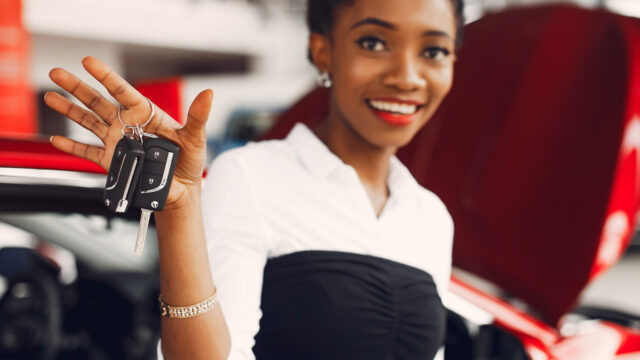The cost of owning a car
Buying a car is a big milestone, and while it is convenient, it comes with added and ongoing expenses.

There’s a certain freedom and independence, and convenience that comes with owning a car, but it comes at a cost.
Owning a car has become a necessity, especially for the growing middle class with more disposable income. However, when buying a car, people usually budget for the purchasing price, fuel costs, and annual insurance costs. But there are many other expenses associated with owning a car. For example, if you are getting a car loan, you’ll have to consider the monthly repayments and the interest that needs to be paid.
So, if you are tired of using public transportation and are thinking about buying a car, here’s a rough breakdown of the cost of ownership of a car.
Vehicle Cost
The cost of purchasing a car in Kenya varies depending on the make, model, and age of the vehicle. A new car can cost anywhere from Ksh 1 million to Ksh 20 million, while a used car can cost anywhere from Ksh 200,000 to Ksh 5 million. It’s worth noting that import duties and taxes can significantly increase the cost of importing a car. It is also vital to research the price difference between importing a car and buying one locally, as importing can sometimes be cheaper.
Insurance Cost
Car insurance is mandatory in Kenya, and the cost of insurance depends on factors such as the age and make of the car, the driver’s age and driving history, and the location of the car. Comprehensive insurance can cost anywhere from Ksh 20,000 to Ksh 100,000 per year.
Parking
As insignificant as it may seem, the cost of parking a car adds up to a very significant figure at the end of the month, not to mention at the end of the year. Let’s say the car owner parks in town at least 4 times per week at a flat rate of Ksh300. This translates to Ksh1,200 per week, Ksh6,000 per month and about Ksh62,400 at the end of the year. If one then spends the same amount each week at residential parking spots, then the figure doubles to Ksh124,800 at the end of each year – residential parking fees are, however, not that common.
Fuel Cost
The cost of fuel in Kenya varies depending on where one fuels and the type of fuel used. As of March 2023, petrol cost an average of Ksh 137.00 per liter, while diesel cost an average of Ksh 122.00 per liter. The cost of fuel can be a significant expense, especially for those who travel long distances.
Service Cost
Of course, with any car comes the need for maintenance. You need to keep your car in good condition with regular oil changes, tire replacements, and other repairs. Depending on the make and model of your car, these costs can be quite significant.
Spare Parts:
The cost of spare parts is highly underrated, and it is one of the highest costs of maintaining a car. The price of spare parts are escalating with some parts becoming harder to find. The cost of purchasing car spare parts in Kenya is affected by various factors – the make and model of your car, availability of the parts, quality of the spare parts, and location of purchase can all affect the price. Luxury or foreign car parts tend to be more expensive than locally made or common models. Rare or difficult-to-find parts will be more costly. Genuine parts from the manufacturer will be more expensive than aftermarket parts, but may also be of higher quality. To save on costs, it’s important to research, compare prices, and shop around for the best deals.
Painting the Car
No one ever prepares you for the annoying boda boda rider who scratches your car or a reckless driver who hits you, forcing you to get your car repainted. Repainting a car can cost from Ksh 30,000 to as high as Ksh250,000.
Car Wash
Additional costs that people never remember may include car wash charges which range from Ksh 150 to Ksh 1,000 inclusive of the vacuum cleaning.
The cost of owning a car in Kenya can be quite significant, with the total cost depending on factors such as the make and model of the car, fuel consumption, maintenance costs, insurance costs, and taxes.
Before getting your first or next car, carefully consider all these factors. Explore other transportation options such as public transportation, carpooling, or cycling, depending on one’s circumstances.
